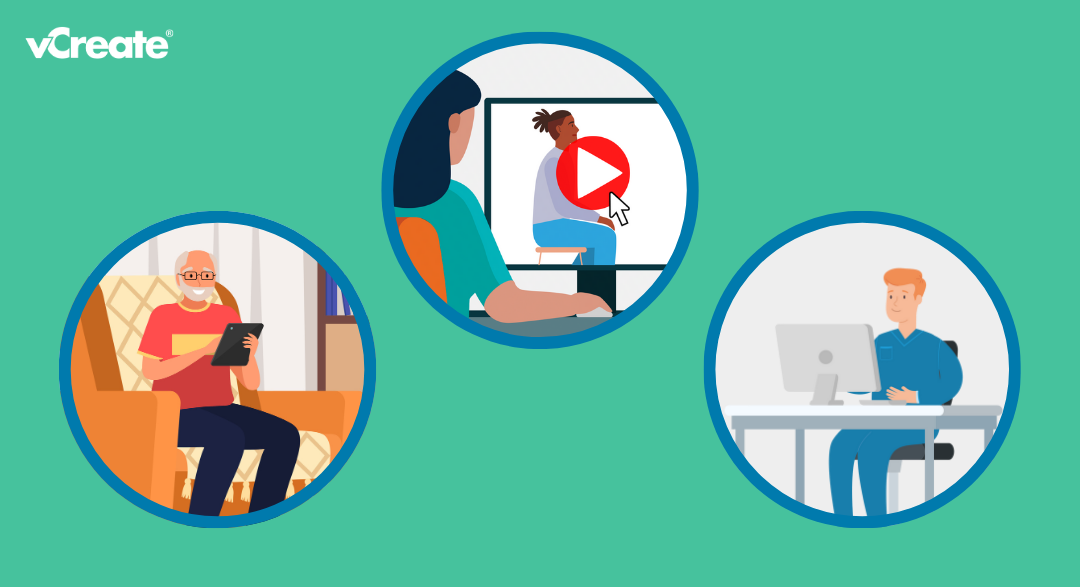Leveraging Secure Video Technology to Enhance Diagnostic Accuracy in Adult Neurology
13 March 2024

Despite advancements in diagnostic technologies, adult neurology still faces significant challenges in obtaining accurate diagnoses. The complexity and heterogeneity of neurological disorders make diagnosis and treatment difficult. Many clinicians heavily rely on patient/caregiver descriptions of an event or witnessing one themselves, both of which are challenging to obtain during scheduled appointments due to the atypical and intermittent nature of neurological symptoms.
Reliance on indirect evidence can result in misdiagnosis rates of up to 50%, leading to delayed care, prolonged suffering, and unnecessary investigations and treatments before arriving at an accurate diagnosis.
Due to these limitations, and with many adult patients regularly presenting with multiple different seizure types and events, video often emerges as the most reliable means to achieve a holistic view of the symptoms and reach an informed diagnosis.
vCreate’s clinical video service is being utilised by adult neurology teams across the UK to support rapid, precision diagnostics and reduce rates of misdiagnosis.
When reviewing patient referrals, clinicians can invite patients and caregivers to upload smartphone-recorded videos of the patients' signs or symptoms to vCreate’s secure cloud-based system. Patients/caregivers also provide additional context by answering a bespoke questionnaire at the time of upload.
The videos and data are remotely assessed alongside the referral information, giving clinical teams a more detailed and holistic view of the patient’s problem.
By harnessing the universal presence of smartphones, vCreate provides clinicians with access to a wealth of visual information, offering insights into the nature and progression of the patients’ condition. Patient videos can capture crucial details such as the duration of each event, associated symptoms, and any triggering factors, all of which can significantly aid in the diagnostic process.
Clinicians can review patient videos at their convenience, pausing and replaying the video to examine specific areas of concern and directly contact caregivers using the message feature to request additional videos. This enhanced access enables clinicians to identify subtle abnormalities or patterns of movement that may have been missed during an in-person appointment.
A 2022 Healthcare Improvement Scotland report on the impacts of vCreate reported that 95% of adult neurologists found the technology useful in making a diagnosis and 73% felt it allowed for a shorter time to diagnosis.
One Consultant Neurologist interviewed for the report shared “A patient with complex disabilities, chronic pain, a functional neurological disorder, mobility problems and a history of seizures, began experiencing seizures again. I spoke to a witness, and the witness history didn't make it clear whether we were dealing with epilepsy or functional seizures as part of FND. When we got the videos from vCreate, we could see very typical features of functional seizures. It was incredibly helpful to have the videos, along with evidence from the video telemetry, to manage that patient.”
vCreate provides clinicians with the ability to remotely share patient videos and associated data with healthcare professionals both within and outside of their organisation for specialist review and second opinions. By allowing multiple clinicians to review and contribute to the diagnostic process, the likelihood of overlooking critical information or misinterpreting symptoms is greatly reduced.
Dr Eleonora Saturno, Consultant Neurologist in NHS Fife, shared “vCreate has enhanced the way we diagnose and monitor patients – improving accuracy, collaboration and communication.
vCreate allows patients to communicate with our team in real-time, so we can provide reassurance of non-epileptic events and put their minds at ease a lot faster than traditional methods.”
For patients/caregivers who don’t speak English as their first language, they can translate the service and all messages to and from the clinical team into their language of choice. This ensures that all symptoms and events are communicated effectively with the clinical team and accurately diagnosed.
To learn how vCreate can benefit your clinical team and patients, email us to request a demo.
